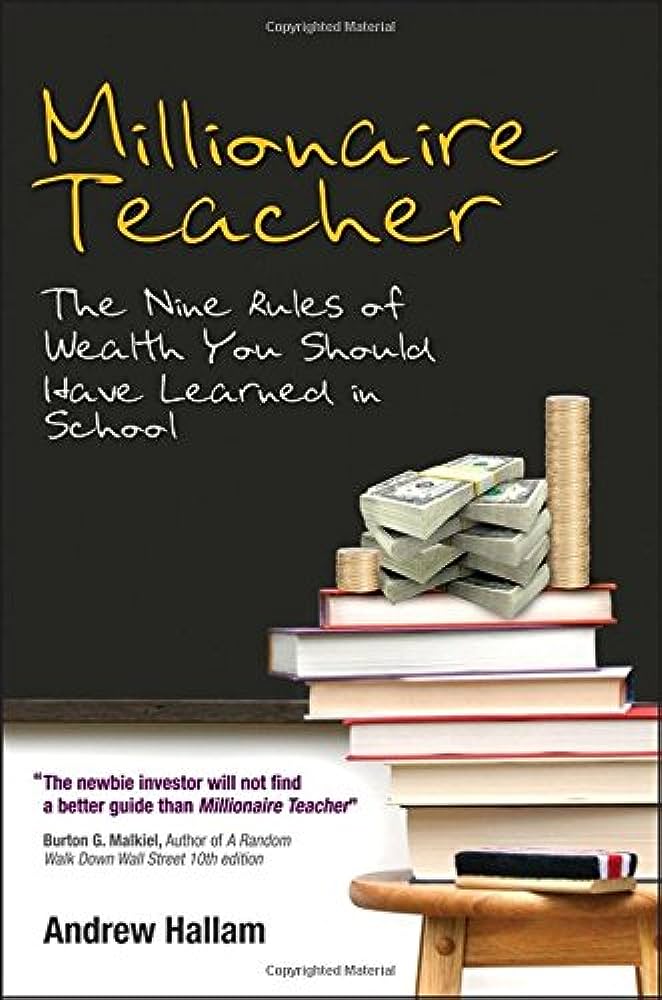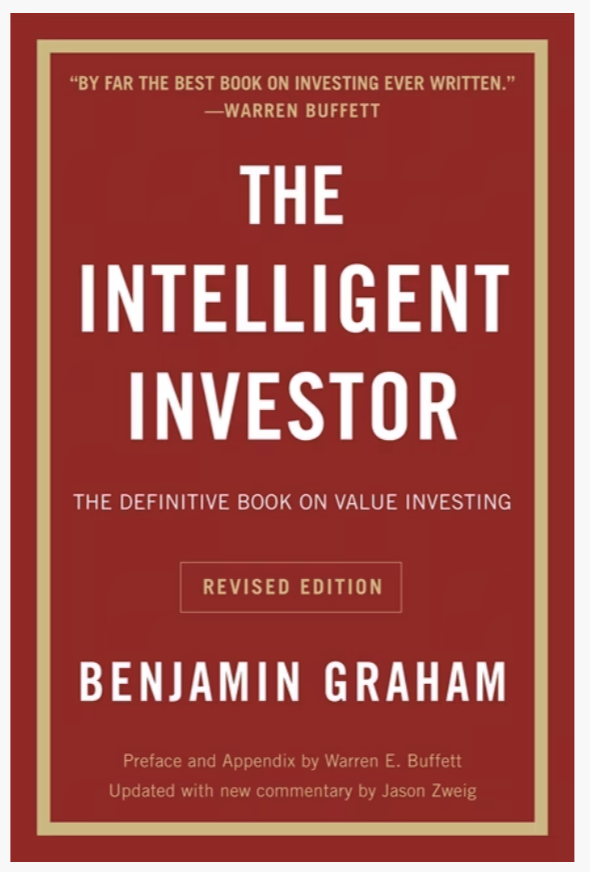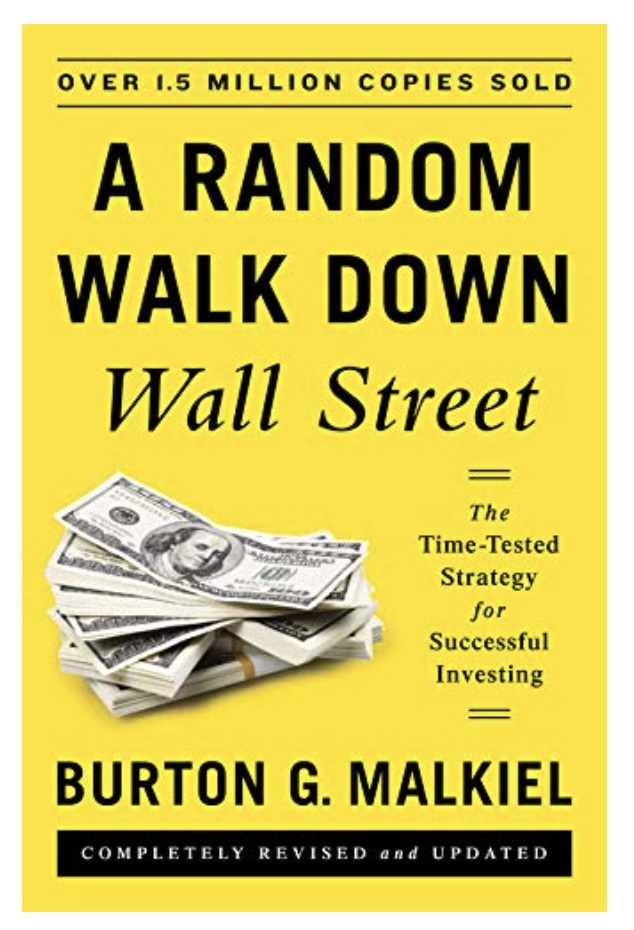
Five best investing books in 2024
Prostock-studio / Shutterstock
Knowledge is always a good thing, especially when it comes to investing. These are the five best investing books that you should know about, read and share. It's a mixed bunch, but all of them have great nuggets of advice worth considering as you update and fine-tune your investment strategy in 2024.
Investing can be very complex, but it doesn’t need to be difficult. There are some excellent investment books that will not only help you get started with investing but also provide you with some advanced skills that you can use to grow your portfolio and increase your profits. In this article, we discuss five of the best investing books, with each one serving a specific purpose that can help you with your investments.
Best overall investment book

Millionaire Teacher by Andrew Hallam
Millionaire Teacher by Andrew Hallam is a foundational “must-have” reference book for investors in Canada. This invaluable, best-selling book offers a crash course in personal finance, covering topics like how to prepare a reliable and low-cost portfolio that will lead to strong returns, and ultimately, true prosperity. For decades, Hallam taught personal finance courses in Canada and abroad and built a million-dollar investment portfolio on a teacher’s salary. So he knows first-hand what he’s talking about.
For starters, there are several outstanding lessons to get you financially fit, beginning with adopting a wealthy mindset rather than just “acting wealthy.” For instance, in the “Spend Like You Want to Grow Rich” chapter, he discusses how decamillionaires – those with a net worth of more than $10 million – typically pay just $42,000 for a new car. So many of the richest people in the world pay a lot less money for their cars compared to wannabe wealthy people, who plunk down big bucks for fancy wheels and often go into debt just to show off. This goes to the core message of the book: if you want to build wealth, do like the average decamillionaire and live within your means, save regularly, and invest in index funds.
In one of the most eye-opening sections, Hallam cautions against using financial advisors and banks, as they are driven by other interests that conflict with looking out for your financial well-being. Instead, he describes in plain, easy-to-understand lingo how you can build a portfolio of low-cost index funds or ETFs (using real investors as case studies) and exposes tactics that banks and financial advisors use to sell their services. Using research, data, and case examples, he shows how easy it is to outperform what financial advisors and banks will try to sell you, simply by using one of the best robo advisors or best online brokerages to invest in index funds. This may be the most important investment book to read for your financial well-being, especially since there is plenty of Canadian-focused content in this excellent book.
Best book for advanced investment advice

The Intelligent Investor by Benjamin Graham
The Intelligent Investor by economist Benjamin Graham was first published in 1949 and it’s still relevant today. According to billionaire investor Warren Buffett, it’s the best investment book ever written.
Known as the “father of value investing,” Graham recommends buying stocks that appear underpriced relative to what their inherent worth is, which can be determined through fundamental analysis. A wide range of topics are covered in the book including comparing various investment options, specific investment fundamentals, how to examine investments, and much more.
To summarize, the book covers everything that a beginning investor needs to know about investing. Graham also discusses the fundamentals of the stock exchange and teaches the reader how to perform basic analysis on stocks. He also talks about different methods for managing your portfolio. For example, he discusses both an aggressive and defensive strategy.
To illustrate his various points, Graham contrasts the shares of a number of different businesses. The focus of the book is not on how to earn millions, but on how to build wealth by not losing money. It follows the fundamental principles of value investing. Essential fundamentals are covered that can help you get started with investing and continue to move forward for a long time by providing detailed history lessons of the stock exchange and advanced strategies on how to analyze stocks.
Best book for beginners:
The Little Book of Common Sense Investing by John C. Bogle
The book is based on the ideas of John C. Bogle, the former CEO and founder of The Vanguard Group who is credited with creating the first index fund. First published in 2007, the tenth-anniversary version of the book contains two new chapters and updated information. It shows that trying to beat the market is a losing game: the more fees earned by brokers and managers, the less money that shareholders earn. In this book, Bogle educates investors on how to get the most from their investments by using the “buy and hold” method to invest in inexpensive index funds.
Using this strategy, Bogle lays out how you can invest for the long term and build wealth at a minimal cost by investing in an index fund that tracks a broad stock exchange index, such as the S&P 500. He argues that the easiest and most effective investment strategy is buying and maintaining all of the publicly-held companies in the country at a low price.
Best book for a well-rounded investment education

A Random Walk Down Wall Street: The Time-Tested Strategy for Successful Investing by Burton G. Malkiel
Both professional and beginning investors have found invaluable information in this influential investment book, A Random Walk Down Wall Street: The Time-Tested Strategy For Successful Investing. In this classic finance book, economist Burton G. Malkiel provides a long-term easy solution for succeeding with your investments and you can use it no matter how old you are.
Being a successful investor doesn’t mean you necessarily have to spend a ton of energy and dedicated hours every day in order to handle a diverse, broad-based portfolio successfully. This book is invaluable for investors who are trying to maximize the value of their first investments.
The first thing you need to learn is how to talk the investment talk or know what is being said at least when someone is discussing it. Malkiel teaches you the jargon used by Wall Street so you can walk the walk and talk the talk.
There are chapters on cryptocurrencies and on tax-loss harvesting (which is a strategy used to decrease taxes) in the latest edition. Extra content has also been added on emerging markets and exchange-traded funds (ETFs). Finally, Malkiel has written a new chapter on the pros and cons of smart beta – which is a new investing trend.
There are also useful definitions for investment provisions in Malkiel’s book, and he then applies them to various investment plans aimed at various stages of life. His focus is on long-term investments rather than “get-rich-quick” schemes as well as how to prevent common mistakes and the best methods for forecasting costs. If you are looking for increment advice on the method investment methods, check out this great investing book for beginners.
Best book for creative thinkers
The Dhandho Investor: The Low–Risk Value Method to High Returns by Mohnish Pabrai
The managing partner of Pabrai Investment Funds and a disciple of Warren Buffett, Mohnish Pabrai is most famous for spending $650,000 to meet with Buffett for lunch. But his book The Dhando Investor is the real reason he’s kind of a big deal: this book draws on the concept of dhando, which refers to “endeavours that create wealth” and outlines a useful framework for value investing in a very accessible and simple way.
This book was written for the intelligent investor, and although only 200 pages in length, it draws on the capital-allocation model that the Patel family from India crafted, and presents it in such a way that it can be implemented by investors.
For those that aren’t familiar, the Patels were an Indian family that made significant real estate investments in the 1970s in East Africa and eventually made their way to the United States and Canada. Their descendants now account for close to 700,000 of the North American population, and the strategies they used to become so dominant in the real estate market are used as a foundation for this book. You can read more about the Patels here.
He also summarizes the fundamentals that are followed by overseas investors to create wealth and build companies. Pabrai discusses how the same principles that are used to succeed in the motel/hotel sector can also be used by investors, such as investing in low-risk, high-uncertainty businesses (the odds of future loss are low, despite uncertainty in the present), always finding a margin of safety, and investing in what copycats are doing – not innovators.
He also stresses how important it is to invest in your best ideas, such as making only a few major bets (but focus on the big ones), and spacing them out over time – meaning that you should roll the dice, but only do it once in a great while, and only for your best ideas. The book is a short read, but very impactful if you would like to go beyond what traditional investment books tend to cover.
Read: How to curb your investing "fear of missing out"
Summary
As I am sure you are aware, there are hundreds of different investment books that are considered to be the very best in the field and will help you learn how to invest. It ultimately comes down to your comfort level, knowledge, risk tolerance, and investment style. If you are a beginning investor, you most likely will not want to dive right into advanced investment strategies. However, if you are a more experienced trader, you may find value in books that cover advanced analytical concepts.
Nevertheless, once you’ve done a little reading and reflection, investing will be a cinch. If you’re eager to get started and comfortable with DIY investing, it’s easy to buy and sell through a discount brokerage. Check out our ultimate guide to Canada’s discount brokerages to find one that best suits your needs. But here’s the short story: our top choice is Questrade.
Start investing with Questrade!If you’re not quite ready to go out on your own, follow Andrew Hallam’s smart advice and consider building an investment portfolio with a robo advisor. The benefit of a robo advisor is they’re easy to use and come with low fees, and you can set up an automated payment to quickly grow your wealth. For investors leaning towards this route, it’s worth your while to check out Wealthsimple. The combination of reasonable pricing, overall usability, and unique perks make it our top choice for a robo advisor in Canada.
Happy reading and good luck!
Get started with Wealthsimple Invest
Chris has an MBA with a focus in advanced investments and has been writing about all things personal finance since 2015. He’s also built and run a digital marketing agency, focusing on content marketing, copywriting, and SEO, since 2016. You can connect with Chris on Twitter @moneymozartblog.
Disclaimer
The content provided on Money.ca is information to help users become financially literate. It is neither tax nor legal advice, is not intended to be relied upon as a forecast, research or investment advice, and is not a recommendation, offer or solicitation to buy or sell any securities or to adopt any investment strategy. Tax, investment and all other decisions should be made, as appropriate, only with guidance from a qualified professional. We make no representation or warranty of any kind, either express or implied, with respect to the data provided, the timeliness thereof, the results to be obtained by the use thereof or any other matter. Advertisers are not responsible for the content of this site, including any editorials or reviews that may appear on this site. For complete and current information on any advertiser product, please visit their website.





